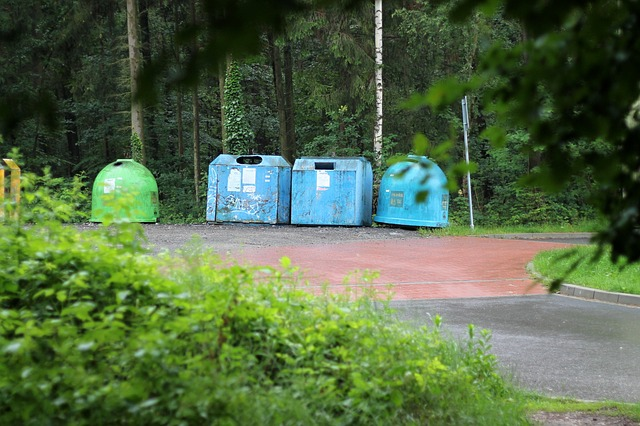In the era of growing environmental consciousness, the terms 'zero waste' and 'recycling' have become buzzwords in the quest for sustainability. While both practices are critical in our journey to protect the planet, they are often misunderstood or used interchangeably. This article aims to dissect these concepts, unraveling their true meanings, benefits, and how they differ yet complement each other in the broader context of environmental conservation. Understanding zero waste and recycling is not just about terminology; it's about grasping the essence of our collective efforts to foster a healthier planet.
Zero waste is a philosophy and a design principle for the 21st century. It goes beyond recycling by taking a 'whole system' approach to the vast flow of resources and waste through human society.
Zero waste represents a fundamental shift in our approach to resources and waste management. It challenges traditional waste disposal methods and encourages us to think about how we can close the loop in our consumption patterns.

Recycling is a key component in the global effort to reduce waste and protect the environment. It involves the process of collecting and processing materials that would otherwise be discarded as waste, turning them into new and useful products.
Recycling is a vital practice in our journey towards a more sustainable world. It represents an important step in reducing our environmental footprint, but it needs to be part of a broader strategy that includes waste reduction at the source.
The zero-waste approach is more than just an environmental strategy; it's a comprehensive commitment to sustainability that offers numerous benefits:
The zero-waste approach offers a holistic path to sustainability, addressing environmental issues at their source and promoting a more circular economy.
Recycling is a key environmental practice with several tangible benefits:
Recycling offers a practical way to contribute to environmental conservation and is an essential component of sustainable waste management.
While both zero waste and recycling are vital for environmental sustainability, they have distinct approaches and impacts:
Understanding the nuances between zero waste and recycling is key to adopting effective environmental practices. Both approaches are crucial in their ways and, when combined, can significantly contribute to a more sustainable and waste-resilient world.
Combining zero waste and recycling practices can amplify our efforts in environmental conservation. Here's how individuals and communities can integrate these approaches effectively:
Start by reducing waste at the source. This can be as simple as refusing single-use plastics, carrying reusable bags and containers, and choosing to use reused and recycled products with minimal or no packaging. Embrace a mindset of reducing, reusing, and repairing before considering disposal.
Effective Recycling Practices: Educate yourself on local recycling guidelines to ensure you're recycling correctly, and aim to emulate sustainable natural cycles. Proper sorting of recyclables can significantly increase the efficiency of recycling processes. Support products made from recycled materials to close the loop.
Communities play a pivotal role in waste management. Participate in or organize community events or zero-waste programs focused on waste reduction and recycling education. Local initiatives like community composting, repair cafes, or swap shops can foster a collective zero-waste culture. A zero-waste community is a happy community.
Advocacy and Policy Support: Advocate for policies and infrastructure that support zero waste and recycling efforts, such as extended producer responsibility, curbside composting, and improved recycling facilities. Support businesses and brands that prioritize sustainability in their operations.
Stay informed about new zero-waste practices and recycling technologies. Sustainability is a dynamic field, and practices evolve with new research and innovations.
By blending zero-waste principles with robust recycling habits, we can create a more sustainable approach to waste management. Each individual's and community's effort counts towards building a more sustainable and resilient environment.
Zero waste is a holistic approach aimed at eliminating waste entirely, focusing on waste prevention and sustainable consumption. Recycling is the process of converting waste into new materials and dealing with waste after it has been created.
While zero waste significantly reduces waste production, it's challenging to completely eliminate waste. Recycling is still necessary for managing waste that cannot be avoided.
Recycling is crucial but not sufficient on its own. It should be part of a broader waste management strategy that includes reducing waste at the source, as per the zero waste approach.
Begin by reducing consumption, reusing products, and choosing items with minimal packaging. Gradually incorporate practices like composting, repairing, and buying second-hand.
Yes, zero waste can be cost-effective. It often involves buying less, choosing reusable items over disposable ones, and reducing overall consumption, which can save money in the long run.
Focus on reducing waste and reusing items as much as possible. Advocate for better recycling facilities in your community and support policies that promote recycling and waste reduction.
The journey towards a sustainable future is multifaceted, with zero waste and recycling serving as crucial pathways. While they have distinct approaches and impacts, together, they form a comprehensive strategy for environmental conservation.
Zero waste challenges us to rethink and redesign our consumption patterns, aiming to eliminate waste at its source. It's about creating a circular economy where resources are valued and reused, rather than discarded. Recycling complements this by handling the waste that does get produced, turning it into new resources, and reducing our reliance on virgin materials.
Both zero waste and recycling require commitment, not just from individuals but also from communities, businesses, and governments. By adopting a mindset of sustainability in our daily choices and advocating for systemic changes, we can collectively move towards a greener, more sustainable planet.
In conclusion, the path to environmental sustainability is not a choice between zero waste and recycling, but rather an integrated approach that embraces both. As we continue to confront environmental challenges, let's commit to these practices, understanding their roles and supporting their implementation in our lives and societies.